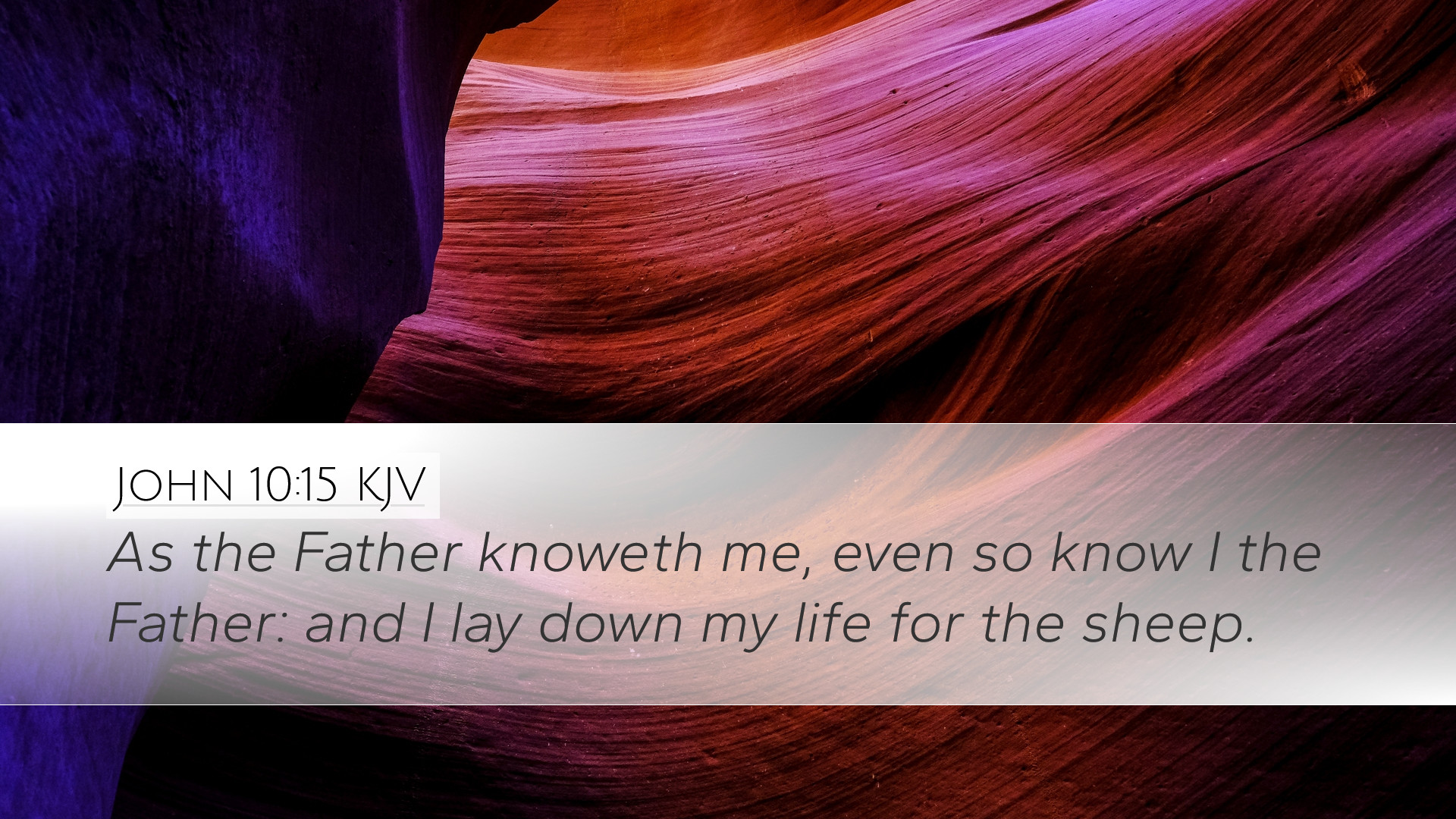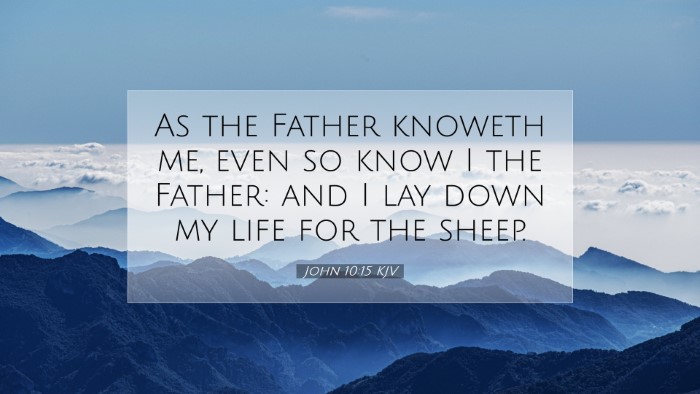Commentary on John 10:15
John 10:15 states: "I lay down my life for the sheep." This verse is a crucial part of Jesus' teaching about His role as the Good Shepherd. This commentary draws insights from notable public domain sources such as Matthew Henry, Albert Barnes, and Adam Clarke to provide a deeper understanding of this profound declaration.
Context and Meaning
In the context of John 10, Jesus presents Himself as the Good Shepherd, contrasting His care for the sheep with the hirelings who abandon the flock in times of danger. This verse, where He declares His sacrificial love, underscores the depths of His commitment to His followers.
Matthew Henry’s Insights
Matthew Henry emphasizes the sacrificial nature of Christ’s role. He notes that laying down one's life is the highest demonstration of love. Henry explains that Jesus is making a clear distinction between Himself and those who are only in it for personal gain. The laying down of life encompasses not only His physical death but also a continual offering of Himself to the needs of His flock.
Albert Barnes’ Commentary
Albert Barnes highlights the voluntary aspect of Jesus' sacrifice. He points out that it was not a forced act but an intentional decision made out of love for humanity. Barnes observes that Christ's death is an atonement for sin, showing that the Good Shepherd is willing to protect His sheep even at the cost of His own life. This illustrates the depth of His devotion and the high price paid for the redemption of His people.
Adam Clarke’s Perspective
Adam Clarke provides a broader theological perspective, suggesting that this passage reflects the covenantal relationship between God and His people. Clarke argues that Jesus, as the Good Shepherd, fulfills the promises made by God to care for His flock. He also emphasizes the intercessory role of Christ, who not only lays down His life but continues to advocate for His followers before the Father.
Theological Implications
This verse opens the door to understanding several key theological themes:
- Atonement: The act of laying down His life is integral to the doctrine of atonement, showing how Jesus' sacrifice reconciles humanity with God.
- Shepherd Imagery: The imagery of a shepherd highlights Jesus' tender care, guidance, and leadership over His people.
- Vicarious Suffering: Jesus' death is seen not merely as a tragic event but as a vicarious act of love, where He takes on the punishment for sin on behalf of His sheep.
Application for Pastors and Theologians
For pastors and theologians, John 10:15 serves as a foundational truth to preach the Gospel effectively. By emphasizing Jesus as the Good Shepherd who lays down His life for His sheep, ministers can convey the message of God’s incredible love and sacrifice. This truth should inspire a call for believers to respond in faith and also to emulate that sacrificial love in their own lives.
Encouragement for Believers
Believers can find great comfort in this verse. Knowing that Jesus willingly gave His life for each one reinforces the individual value placed on each member of His flock. This assurance can help believers navigate the struggles of life, knowing they are loved and protected by their Shepherd.
Summary
John 10:15 encapsulates the heart of the Gospel message: the selfless, sacrificial love of Christ as the Good Shepherd. Through insights from renowned commentators, we understand the profound love, voluntary sacrifice, and the relational aspect of Christ's mission. As students of the Word, embracing this truth allows for richer understanding and deeper application of faith in our lives and ministries.


